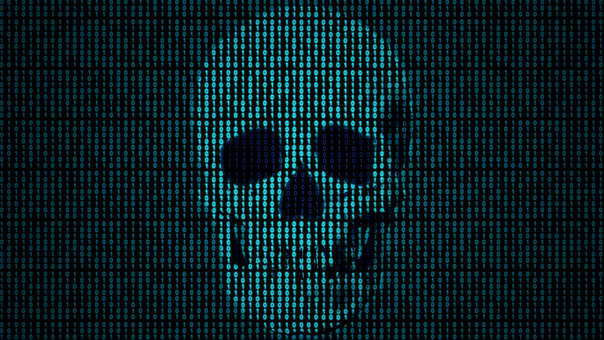
- Home
- Cybercrime
- French-speaking Darkweb : myths and realities (Paul Barbaste, CEIS)
French-speaking Darkweb : myths and realities (Paul Barbaste, CEIS)


The Dark Web has been the subject of many articles and is giving rise to many fantasies. However, few people endeavor to draw a precise portrait. Most of the time, they simply list illegal goods sold on the black markets. This article aims to define it more precisely and draw up a panorama of the French and foreign Dark Web.
Darknets, Dark Web and Deep Web: myths and realities
“Dark Web” refers to content published on darknets, i.e. overlay networks that use protocols allowing their users to remain anonymous. In the early 1970s, the term « darknet » referred to isolated ARPANET networks that could receive data but whose IP addresses were not referenced and did not respond to requests. Today, the most famous darknet is the TOR network (‘The Onion Router’), with more than 2.5 million users, just ahead of Freenet and I2P. Due to the high degree of anonymity they offer to their users, darknets are often used for illegal purposes.
The Dark Web is too often mistaken for the « Deep Web », or « invisible web », which refers to content which is not indexed by general search engines such as Google, Yahoo or Qwant. It accounts to about 90% of the Web. Most of the Deep Web consists of databases that are too large to be processed, like the Internet Movie Database, the National Climatic Data Center, or the NASA database. However, these databases remain accessible to classic browsers such as Chrome, Firefox or Explorer, unlike content published on a darknet.

The French-language Dark Web
A French ethos?
The French darknet community is organized around three types of platforms: forums, where users discuss various topics most often related to hacking; black markets, where large quantities of illegal goods are traded; and autoshops, websites that specialize in the sale of one kind of illegal product and belong to one single vendor.
Most of this community and their trading platforms have been hosted and moderated for many years by members of the Liberty’s Hackers group. Moderation, i.e. the regulation of discussion topics and sold items, is subject to a specific ethos that differs from one hacker group to another. As a matter of fact, the sale of weapons, drugs, false identity documents, or stolen data and malware, is allowed on sites moderated by Liberty’s Hackers, but the exchange and sharing of information on child pornography, zoophilia, jihadism and torture, on the contrary, is strictly prohibited. Is this ethos specific to French-speaking hackers? Indeed, it would seem that they are the only one who still follow the guidance established in 2011 by Ross Ulbricht on the Silk Road market place, which advised against the exchange and sharing of information of certain types of content such as child pornography material. Today, this rule seems to have gone out of date on international platforms.
Forums and sales platforms
There are four main forums on the French darknet Tor: French Deep Web, French Dark Place, Dark French Anti-System, and Sherwood Forest. Discussion topics are varied. Although most of the information exchanged on these platforms revolves around the Dark Web and hacking, there are also discussions around political, and sometimes even legal, topics. French Deep Web is the largest forum with nearly 25,000 members and 370,000 messages. Less frequented, the other three forums have a more restricted access policy than French Deep Web, which still stands out as a « general public » forum and is accessible to Dark Web beginners.

The French Deep Web forum is also used by hackers and counterfeiters to promote their own specialized selling websites (the autoshops mentioned above). Indeed, this forum is visited by a large audience and is thus able to promote smaller platforms that do not have sufficient reputation to sell.
Today, many vendors prefer managing their own individual platforms. Mostly because of the recent operations launched by the FBI and Europol, as well as the numerous « scams » conducted by malicious platform administrators who leave overnight with their vendors’ and buyers’ money. Today, nearly twenty French autoshops are registered on Tor.
Black markets are now more neglected and difficult to access, especially following the shutting down by the FBI and Europol, during Operation Bayonet, of black markets Alphabay and Hansa in July 2017 and the numerous arrests of buyers and vendors that followed. The largest share of commodities exchanged are drugs and forged documents, followed by stolen credit cards, weapons and malware.
French-speaking fraudster taking the marketing image of the hit series « La Casa de Papel »
A limited audience with respect to the international Dark Web
However, the French Dark Web remains limited in size compared to the international Dark Web, while the Russian- and English-language platforms are much larger (in the latter category, Dream Market totals more than 120,000 offers against only 3,000 on the French Deep Web market.) Similarly, English-speaking and Russian-language platforms benefit from a much larger audience and are used by many more vendors than French-language black markets.
Moreover, the French Dark Web community is also highly affected by power struggles, as evidenced by the recent departures of several forum administrators. These movements reflect a constant instability that could result in the disappearance of smaller forums and markets, such as Black Hand V2, in favor of more stable platforms. This instability is less felt on international platforms, which remain more sustainable.
the newsletter
the newsletter
![Image Europol Head of Operations discusses [dismantling of LockBit]](https://incyber.org//wp-content/uploads/2023/12/incyber-news-water-cybersecurite-cybersecurity-885x690.jpg)
